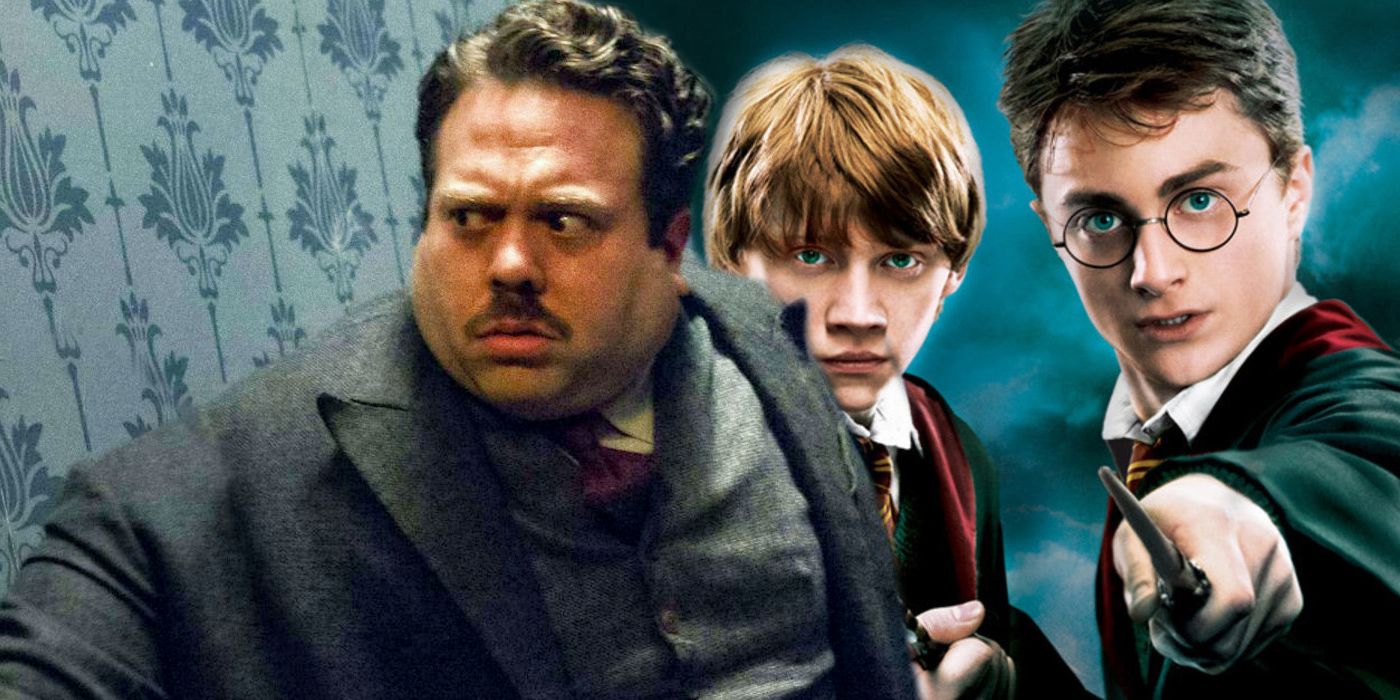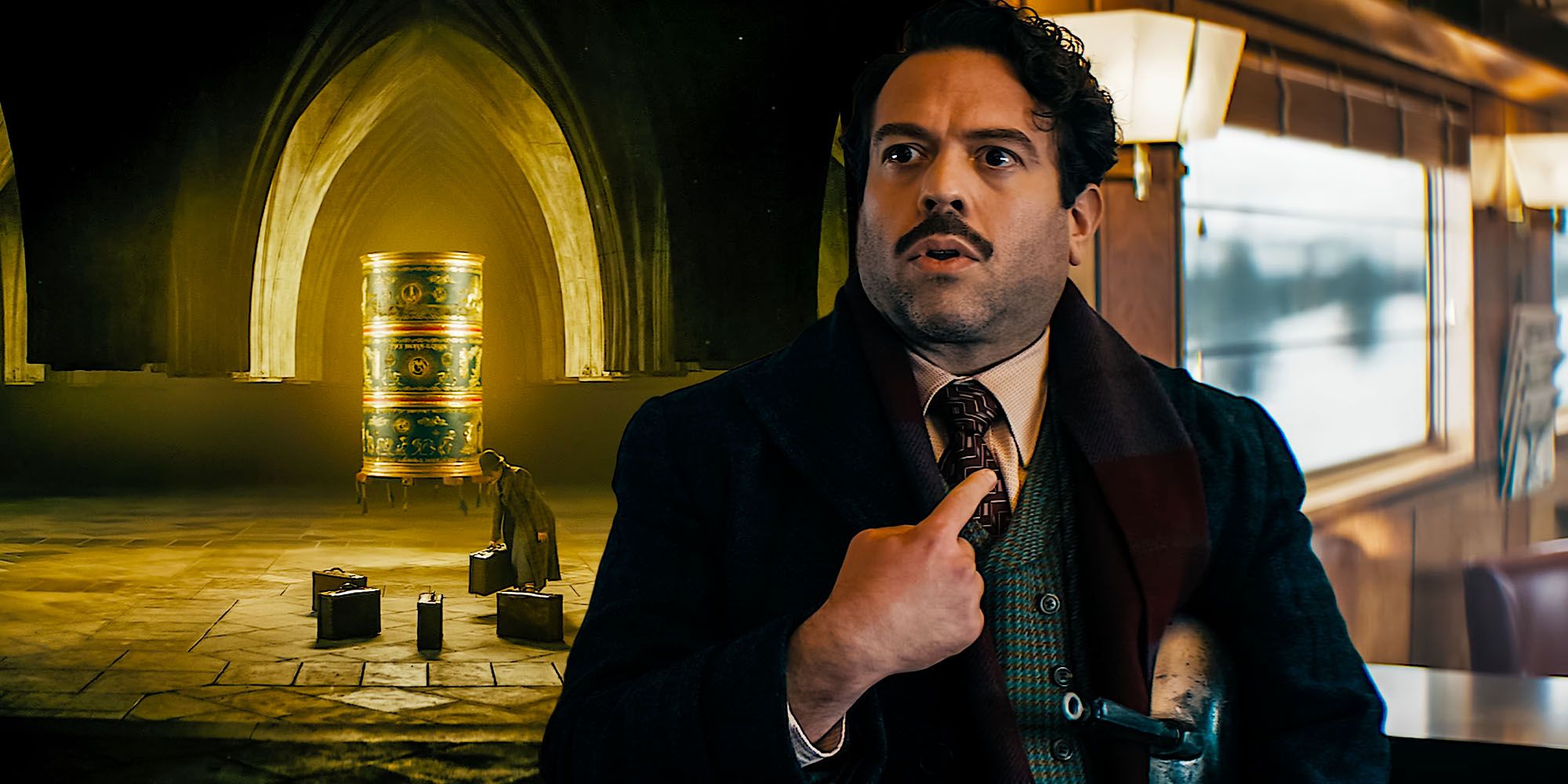Warning: Contains SPOILERS for Fantastic Beasts: The Secrets of Dumbledore
The character of Jacob Kowalski has been a popular addition to the Fantastic Beasts franchise but now he is little more than a mockery of the Harry Potter franchise. The Muggle baker was introduced in the first Fantastic Beasts film with Dan Fogler bringing an easy humor to the role that endeared him to audiences. This encouraged Warner Brothers to bring the character back for the second and third films, but Jacob often doesn’t have much to do in situations that require genuine magical skill.
In the first of the three decreasingly profitable Fantastic Beasts movies, Jacob’s presence highlights the unfair views that wizards often hold towards Muggles. He falls in love with Queenie Goldstein (Alison Sudol) but the laws of the MACUSA prohibit a magical person from marrying a “No-Maj”. Queenie is convinced to join the evil Grindelwald (now played by Mads Mikkelsen after taking over for Johnny Depp) based on his promise to make this sort of intermarriage legal but Jacob refuses to come with her. After recognizing Grindelwald’s deception, Queenie leaves his cause and she and Jacob are married in secret by the end of The Secrets of Dumbledore.
Through all of these events, Jacob has very little agency in his story. He is coerced into being involved in the events of the second and third films by wizards. Once he is entangled in the wizards’ plans to defeat Grindelwald, he is often just a tagalong and is unable to provide substantial help for their cause. Jacob’s character may be marginally helpful for those who are less familiar with the Wizarding World and need an entry point into the story. But since a majority of those who have an interest in Fantastic Beasts have already seen the Harry Potter films, Jacob’s purpose in the franchise makes a mockery of its source.
Jacob’s position in Fantastic Beasts and characterization as a Muggle is now little more than an avatar for audiences to place themselves in the story. This also makes his character a cheap excuse for exposition, asking questions in place of the audience that more knowledgeable wizards are able to answer. While a Muggle presence may provide a more relatable perspective into Grindelwald’s villainous sense of superiority, the Harry Potter films already established the racial tensions between Muggles and wizards. Muggles are treated as a foreign entity to be studied at best and at worst, like a weak link, to be ruled.
Since these tensions had been previously established by the Potter franchise, Jacob’s purpose as an avatar in Fantastic Beasts is somewhat of an insult to its primary audience. Those familiar with the source material won’t need the introduction he provides into the Wizarding World. It has been theorized that Jacob might soon be revealed as either a Squib or a Muggle-born; it would have served both the franchise and the audience better if he had been established as one of these from the beginning.
Being the inverse of the other, both Squibs and Muggle-borns are often positioned as outsiders of the Wizarding community. If Jacob had been a Squib, it would still allow viewers to relate to him as a character unable to perform magic and who might need some things explained to him. It would be even better for him to have been a Muggle-born, whom villains of the Wizarding World treat nearly as badly as Muggles. This would allow him to maintain a position similar to the one he currently has in the Fantastic Beasts fantastic while also allowing him the use of magic and the ability to be more useful to his wizard friends. It would also have been more respectful towards the Potter films, its viewers, and the character himself; in his current form, Jacob will have to be content with always being one step behind the wizards.


